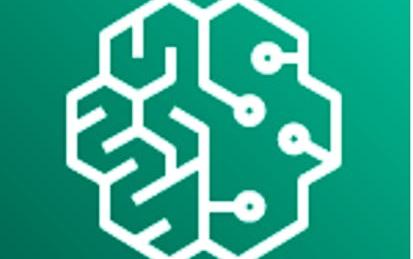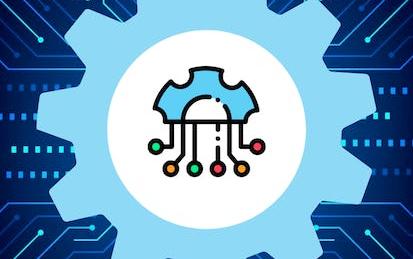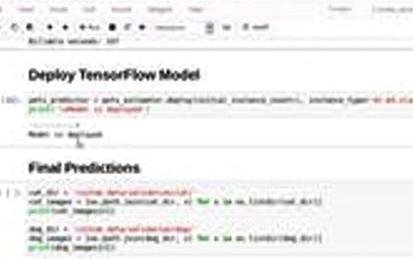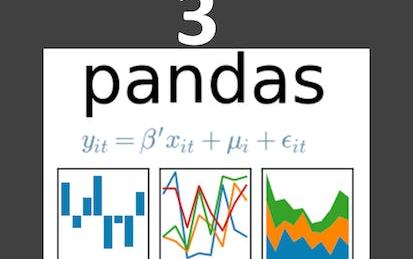

دوراتنا

Machine Learning for Accounting with Python
This course, Machine Learning for Accounting with Python, introduces machine learning algorithms (models) and their applications in accounting problems. It covers classification, regression, clustering, text analysis, time series analysis. It also discusses model evaluation and model optimization. This course provides an entry point for students to be able to apply proper machine learning models on business related datasets with Python to solve various problems. Accounting Data Analytics with Python is a prerequisite for this course.
-
Course by

-
 Self Paced
Self Paced
-
 64 ساعات
64 ساعات
-
 الإنجليزية
الإنجليزية

Semantic Segmentation with Amazon Sagemaker
Please note: You will need an AWS account to complete this course. Your AWS account will be charged as per your usage. Please make sure that you are able to access Sagemaker within your AWS account. If your AWS account is new, you may need to ask AWS support for access to certain resources. You should be familiar with python programming, and AWS before starting this hands on project.
-
Course by

-
 Self Paced
Self Paced
-
 3 ساعات
3 ساعات
-
 الإنجليزية
الإنجليزية

MLOps Platforms: Amazon SageMaker and Azure ML
In MLOps (Machine Learning Operations) Platforms: Amazon SageMaker and Azure ML you will learn the necessary skills to build, train, and deploy machine learning solutions in a production environment using two leading cloud platforms: Amazon Web Services (AWS) and Microsoft Azure.
-
Course by

-
 Self Paced
Self Paced
-
 13 ساعات
13 ساعات
-
 الإنجليزية
الإنجليزية

Introduction to Machine Learning in Sports Analytics
In this course students will explore supervised machine learning techniques using the python scikit learn (sklearn) toolkit and real-world athletic data to understand both machine learning algorithms and how to predict athletic outcomes.
-
Course by

-
 Self Paced
Self Paced
-
 13 ساعات
13 ساعات
-
 الإنجليزية
الإنجليزية

Compare Models with Experiments in Azure ML Studio
Did you know that you can compare models in Azure Machine Learning? In this 1-hour project-based course, you will learn how to log plots in experiments, log numeric metrics in experiments and visualize metrics in Azure Machine Learning Studio. To achieve this, we will use one example data, train a couple of machine learning algorithms in Jupyter notebook and visualize their results in Azure Machine Learning Studio Portal interface. In order to be successful in this project, you will need knowledge of Python language and experience with machine learning in Python.
-
Course by

-
 Self Paced
Self Paced
-
 4 ساعات
4 ساعات
-
 الإنجليزية
الإنجليزية

Developing AI Applications on Azure
This course introduces the concepts of Artificial Intelligence and Machine learning. We'll discuss machine learning types and tasks, and machine learning algorithms. You'll explore Python as a popular programming language for machine learning solutions, including using some scientific ecosystem packages which will help you implement machine learning. Next, this course introduces the machine learning tools available in Microsoft Azure. We'll review standardized approaches to data analytics and you'll receive specific guidance on Microsoft's Team Data Science Approach.
-
Course by

-
 Self Paced
Self Paced
-
 16 ساعات
16 ساعات
-
 الإنجليزية
الإنجليزية

AI Workflow: Enterprise Model Deployment
This is the fifth course in the IBM AI Enterprise Workflow Certification specialization. You are STRONGLY encouraged to complete these courses in order as they are not individual independent courses, but part of a workflow where each course builds on the previous ones. This course introduces you to an area that few data scientists are able to experience: Deploying models for use in large enterprises. Apache Spark is a very commonly used framework for running machine learning models. Best practices for using Spark will be covered in this course. Best practices for
-
Course by

-
 Self Paced
Self Paced
-
 9 ساعات
9 ساعات
-
 الإنجليزية
الإنجليزية

Using TensorFlow with Amazon Sagemaker
Please note: You will need an AWS account to complete this course. Your AWS account will be charged as per your usage. Please make sure that you are able to access Sagemaker within your AWS account. If your AWS account is new, you may need to ask AWS support for access to certain resources. You should be familiar with python programming, and AWS before starting this hands on project. We use a Sagemaker P type instance in this project, and if you don't have access to this instance type, please contact AWS support and request access.
-
Course by

-
 Self Paced
Self Paced
-
 3 ساعات
3 ساعات
-
 الإنجليزية
الإنجليزية

Introduction to Embedded Machine Learning
Machine learning (ML) allows us to teach computers to make predictions and decisions based on data and learn from experiences. In recent years, incredible optimizations have been made to machine learning algorithms, software frameworks, and embedded hardware.
-
Course by

-
 Self Paced
Self Paced
-
 17 ساعات
17 ساعات
-
 الإنجليزية
الإنجليزية

Introduction to Machine Learning with Python
This course will give you an introduction to machine learning with the Python programming language. You will learn about supervised learning, unsupervised learning, deep learning, image processing, and generative adversarial networks. You will implement machine learning models using Python and will learn about the many applications of machine learning used in industry today. You will also learn about and use different machine learning algorithms to create your models. You do not need a programming or computer science background to learn the material in this course.
-
Course by

-
 Self Paced
Self Paced
-
 13 ساعات
13 ساعات
-
 الإنجليزية
الإنجليزية

Modeling Time Series and Sequential Data
In this course you learn to build, refine, extrapolate, and, in some cases, interpret models designed for a single, sequential series. There are three modeling approaches presented. The traditional, Box-Jenkins approach for modeling time series is covered in the first part of the course. This presentation moves students from models for stationary data, or ARMA, to models for trend and seasonality, ARIMA, and concludes with information about specifying transfer function components in an ARIMAX, or time series regression, model. A Bayesian approach to modeling time series is considered next.
-
Course by

-
 Self Paced
Self Paced
-
 11 ساعات
11 ساعات
-
 الإنجليزية
الإنجليزية

Data mining of Clinical Databases - CDSS 1
This course will introduce MIMIC-III, which is the largest publicly Electronic Health Record (EHR) database available to benchmark machine learning algorithms. In particular, you will learn about the design of this relational database, what tools are available to query, extract and visualise descriptive analytics. The schema and International Classification of Diseases coding is important to understand how to map research questions to data and how to extract key clinical outcomes in order to develop clinically useful machine learning algorithms.
-
Course by

-
 Self Paced
Self Paced
-
 21 ساعات
21 ساعات
-
 الإنجليزية
الإنجليزية

Machine Learning Algorithms with R in Business Analytics
One of the most exciting aspects of business analytics is finding patterns in the data using machine learning algorithms. In this course you will gain a conceptual foundation for why machine learning algorithms are so important and how the resulting models from those algorithms are used to find actionable insight related to business problems. Some algorithms are used for predicting numeric outcomes, while others are used for predicting the classification of an outcome. Other algorithms are used for creating meaningful groups from a rich set of data.
-
Course by

-
 Self Paced
Self Paced
-
 14 ساعات
14 ساعات
-
 الإنجليزية
الإنجليزية

Mathematical Methods for Data Analysis
Learn mathematical methods for data analysis including mathematical formulations and computational methods. Some well-known machine learning algorithms such as k-means are introduced in the examples.
-
Course by

-
 التعلم الذاتي
التعلم الذاتي
-
 21
21
-
 الإنجليزية
الإنجليزية

Machine Learning for Investment Professionals
This course is uniquely tailored to the needs of investment professionals or those with investment industry knowledge who want to develop a basic, practical understanding of machine learning techniques and how they are used in the investment process. Incorporating real-life case studies, this course covers both the technical and the “soft skills” necessary for investment professionals to stay relevant.
In this course, you will learn how to:
-\tDistinguish between supervised and unsupervised machine learning and deep learning
-
Course by

-
 Self Paced
Self Paced
-
 17 ساعات
17 ساعات
-
 الإنجليزية
الإنجليزية

XG-Boost 101: Used Cars Price Prediction
In this hands-on project, we will train 3 Machine Learning algorithms namely Multiple Linear Regression, Random Forest Regression, and XG-Boost to predict used cars prices. This project can be used by car dealerships to predict used car prices and understand the key factors that contribute to used car prices.
By the end of this project, you will be able to:
- Understand the applications of Artificial Intelligence and Machine Learning techniques in the banking industry
- Understand the theory and intuition behind XG-Boost Algorithm
-
Course by

-
 Self Paced
Self Paced
-
 3 ساعات
3 ساعات
-
 الإنجليزية
الإنجليزية

Unsupervised Machine Learning for Customer Market Segmentation
In this hands-on guided project, we will train unsupervised machine learning algorithms to perform customer market segmentation. Market segmentation is crucial for marketers since it enables them to launch targeted ad marketing campaigns that are tailored to customer's specific needs.
Note: This course works best for learners who are based in the North America region. We’re currently working on providing the same experience in other regions.
-
Course by

-
 Self Paced
Self Paced
-
 3 ساعات
3 ساعات
-
 الإنجليزية
الإنجليزية

Employee Attrition Prediction Using Machine Learning
In this project-based course, we will build, train and test a machine learning model to predict employee attrition using features such as employee job satisfaction, distance from work, compensation and performance. We will explore two machine learning algorithms, namely: (1) logistic regression classifier model and (2) Extreme Gradient Boosted Trees (XG-Boost). This project could be effectively applied in any Human Resources department to predict which employees are more likely to quit based on their features.
-
Course by

-
 3 ساعات
3 ساعات
-
 الإنجليزية
الإنجليزية

AI for Scientific Research
In the AI for Scientific Research specialization, we'll learn how to use AI in scientific situations to discover trends and patterns within datasets. Course 1 teaches a little bit about the Python language as it relates to data science. We'll share some existing libraries to help analyze your datasets. By the end of the course, you'll apply a classification model to predict the presence or absence of heart disease from a patient's health data.
-
Course by

-
 Self Paced
Self Paced
-
 الإنجليزية
الإنجليزية

IBM Data Science
Prepare for a career in the high-growth field of data science. In this program, you’ll develop the skills, tools, and portfolio to have a competitive edge in the job market as an entry-level data scientist in as little as 4 months. No prior knowledge of computer science or programming languages is required. Data science involves gathering, cleaning, organizing, and analyzing data with the goal of extracting helpful insights and predicting expected outcomes.
-
Course by

-
 Self Paced
Self Paced
-
 الإنجليزية
الإنجليزية

Accounting Data Analytics
This specialization develops learners’ analytics mindset and knowledge of data analytics tools and techniques. Specifically, this specialization develops learners' analytics skills by first introducing an analytic mindset, data preparation, visualization, and analysis using Excel. Next, this specialization develops learners' skills of using Python for data preparation, data visualization, data analysis, and data interpretation and the ability to apply these skills to issues relevant to accounting.
-
Course by

-
 Self Paced
Self Paced
-
 الإنجليزية
الإنجليزية

IBM Introduction to Machine Learning
Machine learning skills are becoming more and more essential in the modern job market. In 2019, Machine Learning Engineer was ranked as the #1 job in the United States, based on the incredible 344% growth of job openings in the field between 2015 to 2018, and the role’s average base salary of $146,085 (Indeed). This four-course Specialization will help you gain the introductory skills to succeed in an in-demand career in machine learning and data science.
-
Course by

-
 Self Paced
Self Paced
-
 الإنجليزية
الإنجليزية

TensorFlow for Beginners: Basic Binary Image Classification
The goal of this project is to introduce beginners to the basic concepts of machine learning using TensorFlow. The project will include, how to set up the tool and get started as well as understanding the fundamentals of machine learning/neural network model and its key concepts. Learning how to use TensorFlow for implementing machine learning algorithms, data preprocessing, supervised learning. Additionally, learners develop skills in evaluating and deploying machine learning models using TensorFlow.
-
Course by

-
 Self Paced
Self Paced
-
 4 ساعات
4 ساعات
-
 الإنجليزية
الإنجليزية

Machine Learning for Data Analysis
Are you interested in predicting future outcomes using your data? This course helps you do just that! Machine learning is the process of developing, testing, and applying predictive algorithms to achieve this goal. Make sure to familiarize yourself with course 3 of this specialization before diving into these machine learning concepts.
-
Course by

-
 Self Paced
Self Paced
-
 11 ساعات
11 ساعات
-
 الإنجليزية
الإنجليزية

Principles of Data Science Ethics
Concern about the harmful effects of machine learning algorithms and AI models (bias and more) has resulted in greater attention to the fundamentals of data ethics.
This data science ethics course for both practitioners and managers provides guidance and practical tools to build better models and avoid these problems. The course offers a framework data scientists can use to develop their projects and an audit process to follow in reviewing them. Case studies with Python code are provided.
-
Course by

-
 Self Paced
Self Paced
-
 الإنجليزية
الإنجليزية



